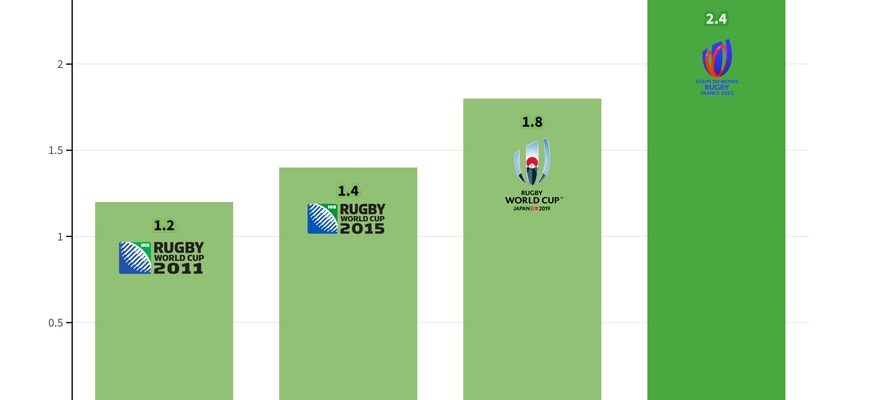The Rugby World Cup opens this September 8 with a match that promises to be close between two favorites: France, the host country, and New Zealand of the All Blacks, three-time winners of the Webb Ellis Trophy named after the inventor of this sport. Born on the grass of a British campus in the 1880s, rugby remained amateur for a long time before becoming professional in the 1990s.
The competition has since entered the top 10 of the most followed sporting events in the world with no less than 857 million viewers in 209 countries for the previous edition. Behind the folkloric dimension of a sport that has long remained amateur, lie considerable economic issues.
Rugby World Cup: a boon for the host countries
© / The Express
The 2019 World Cup in Japan allowed the host country to reap 1.8 billion euros in various economic benefits. On a global level, the event even reached 4 billion euros, a billion more than the 2015 Rugby World Cup in England, and supported 46,000 jobs.
600,000 international visitors took advantage of the event to come to the Japanese archipelago. Nearly 2 million tickets were sold, reaching a participation rate of 99.3% over the 45 matches of the competition: an absolute record.
Atout France estimates that the economic benefits for tourism in France should be around 2.4 billion euros. The event will also be an opportunity to “stimulate the late season” and “better spread the tourist flow over time”, notes the agency.
